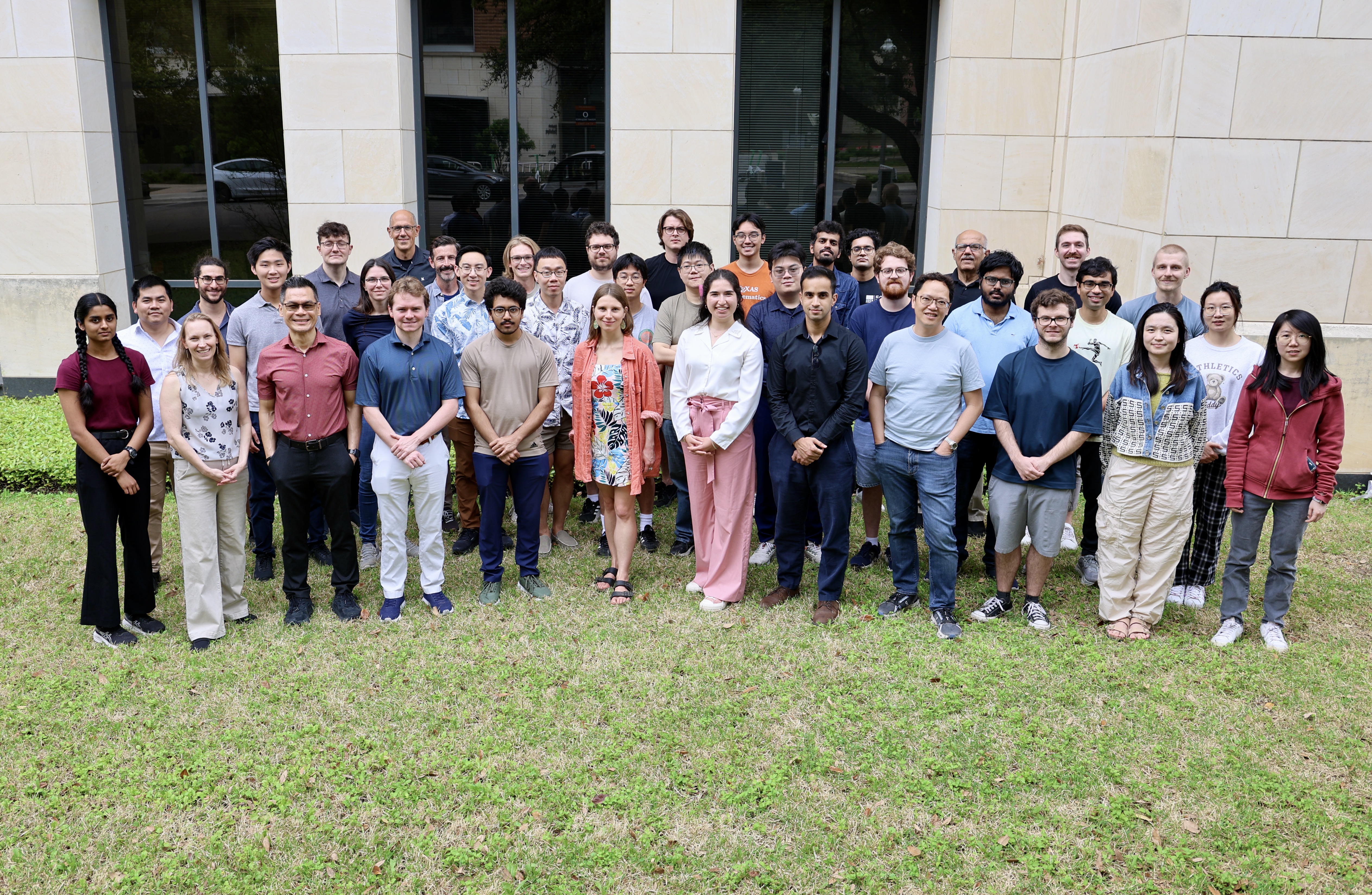
Scientific Machine Learning is an emerging research area focused on the opportunities and challenges of machine learning in the context of complex applications across science, engineering, and medicine. The Center for Scientific Machine Learning is addressing these challenges through the development of new methods that weave together the perspectives of the field of Computational Science and Engineering — perspectives grounded in structured physics-based modeling where enforcing the governing physical laws brings the power to constrain an otherwise intractable solution space — and the perspectives of data-driven machine learning. The group's research projects bring together a diverse range of computing theories and algorithms, including large-scale optimization, inverse theory, reduced-order modeling, uncertainty quantification, Bayesian inference, optimal experimental design, data assimilation, physics-informed deep learning, interpretable machine learning, reinforcement learning, and high performance computing.
Directors

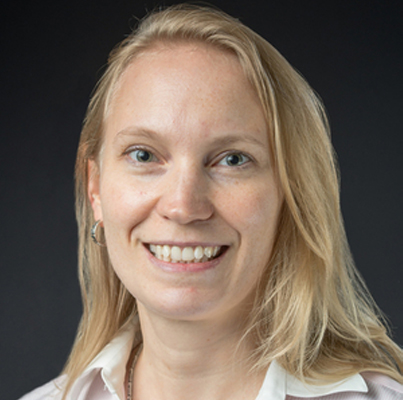
Faculty and Research Staff

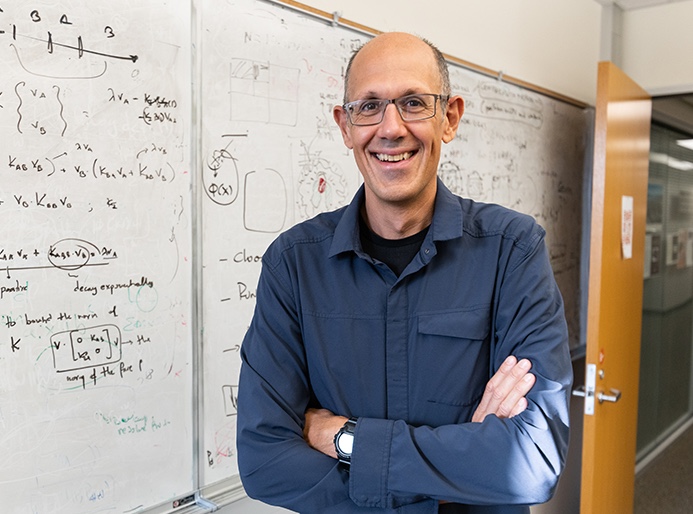
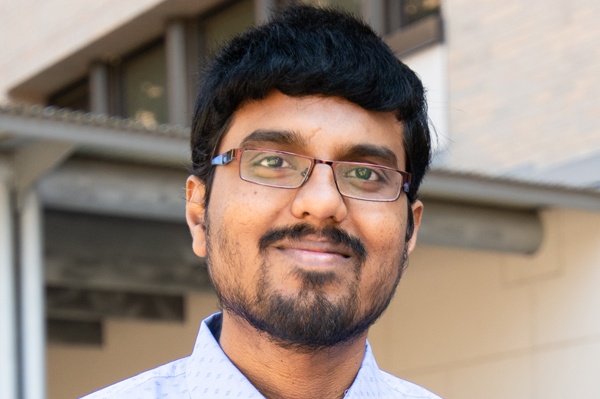
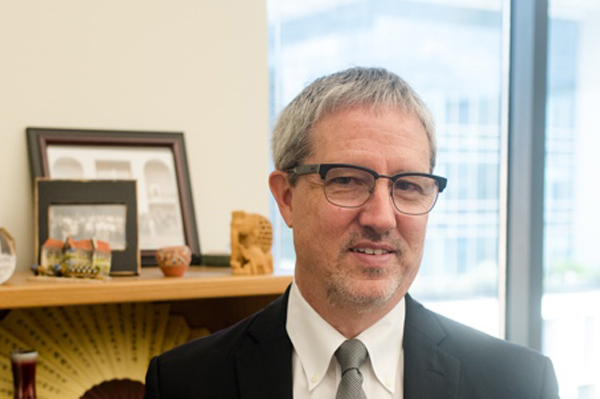


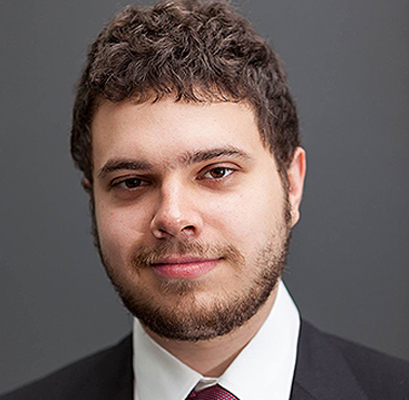
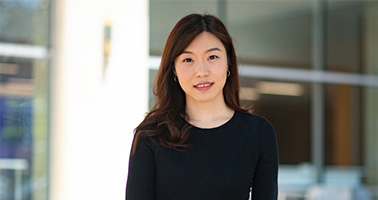



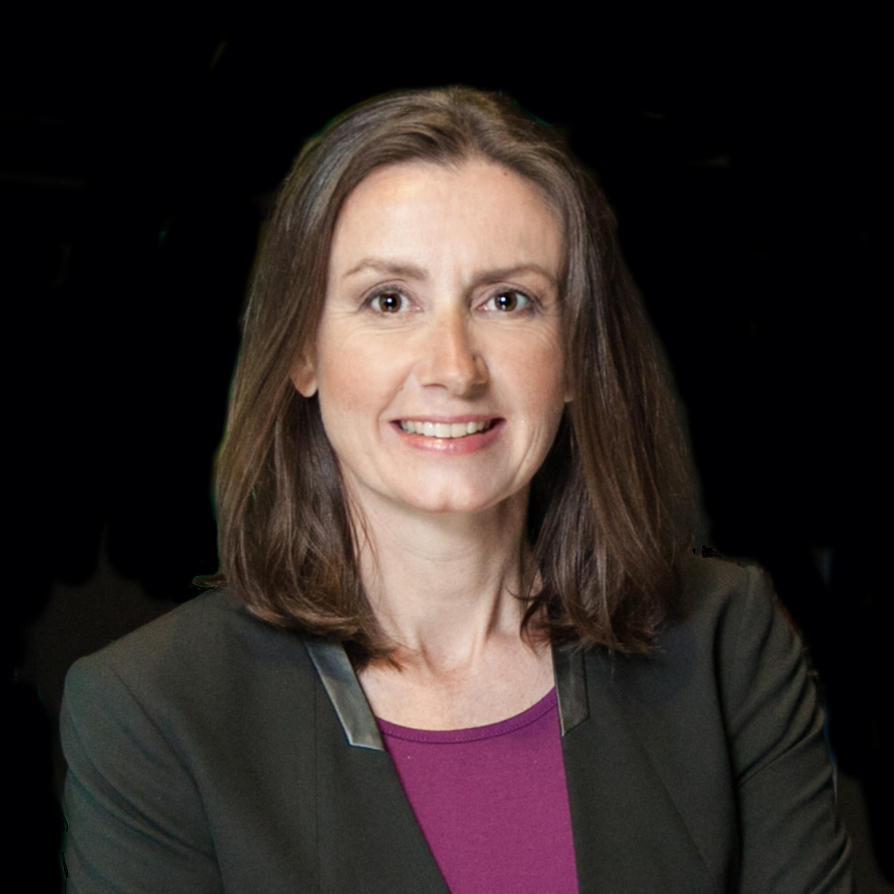
Postdocs
Students
Staff
Members outside the Oden Institute
Rochan Avlur, Benjamin Beal, Ke Chen, Krishanunni Giri, Juncai He, Conrad Li, Lewis Liu, Qijia Jiang, Hai Nguyen, Minh Nguyen, Yorick Sanders, Josh Taylor
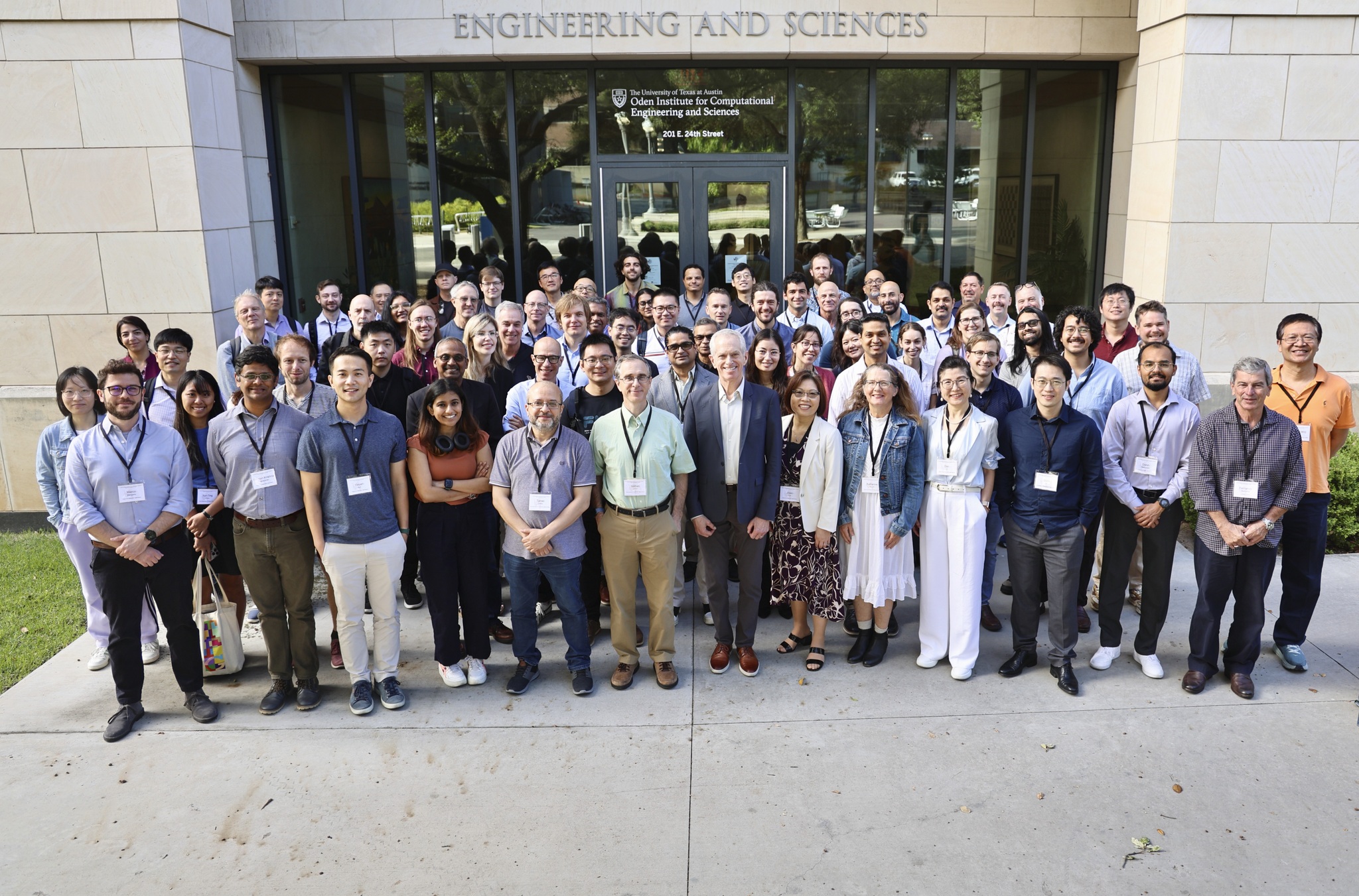
News
Dec. 5, 2025
The AIDT4ES Workshop brought together nearly 100 experts to explore how artificial intelligence and digital twin technology can enhance Earth systems modeling. Researchers showcased innovations ranging from tsunami early warning systems to earthquake simulations and ocean-ice modeling.
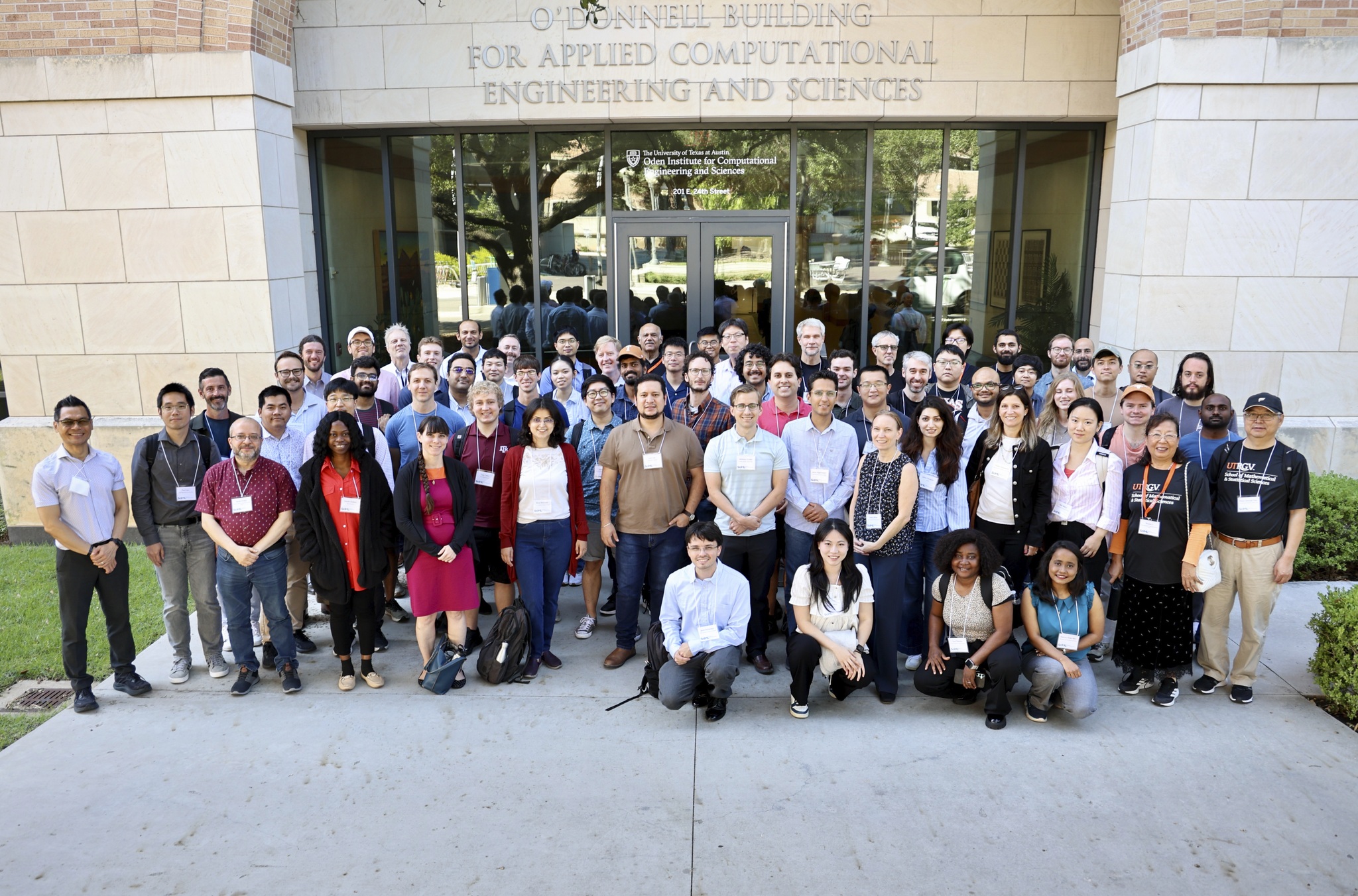
News
Dec. 2, 2025
The third annual Scientific Machine Learning Workshop, held Sept. 25 - 26, brought together researchers and centered around a focused theme: Scientific Machine Learning for Differential Equations.
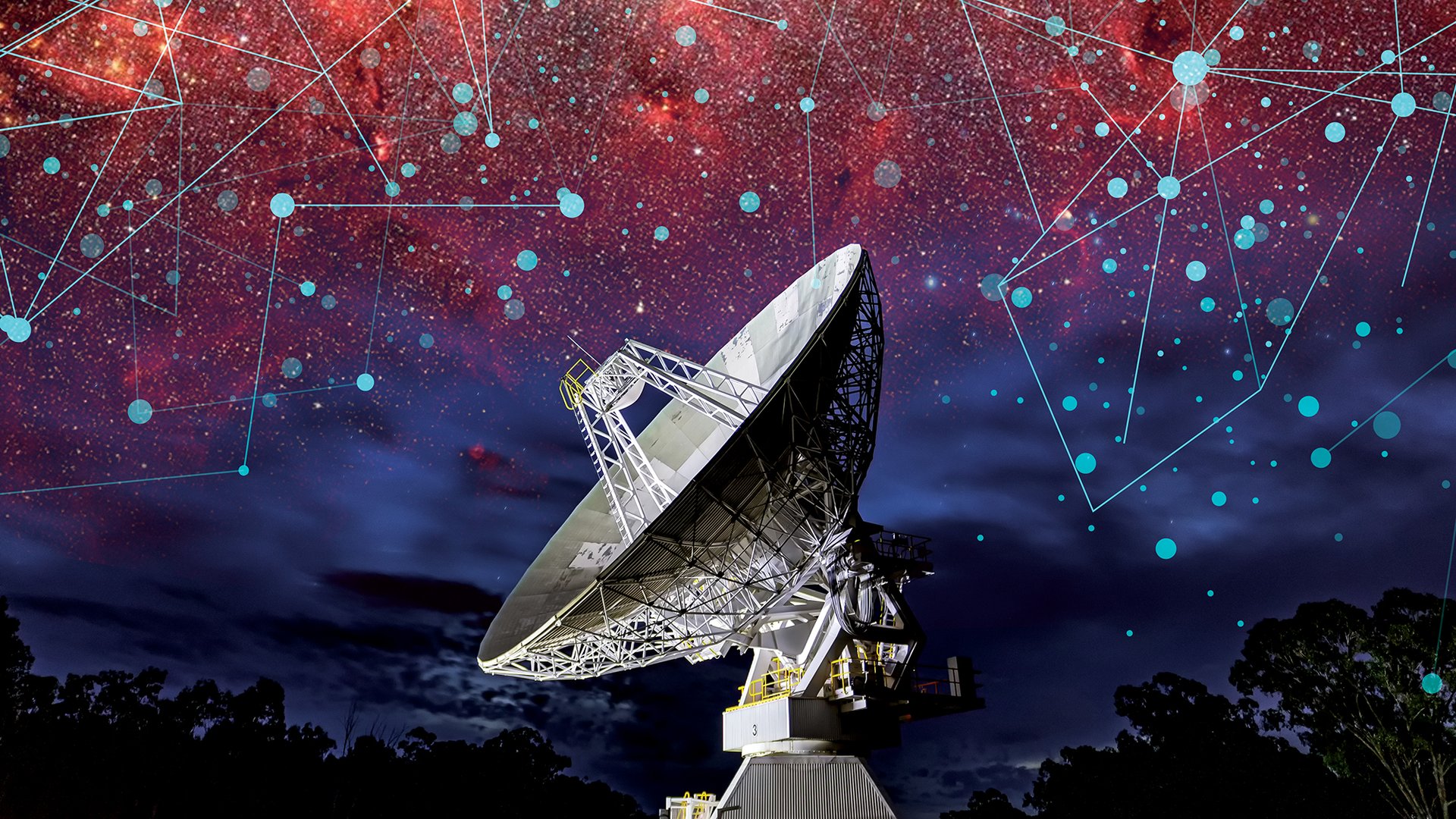
Feature
Nov. 19, 2025
Astronomy is an excellent sandbox to develop AI techniques in a safe and open way. The NSF-Simon's CosmicAI Institute at UT's Oden Institute is an incubator for innovation and developing trust in AI to help researchers make new discoveries about the universe.
Machine Learning for Physics-based Systems: Optimal Approximations, Architectures, and Training. AFSOR MURI.
Addressing the challenges of using machine learning to advance modeling and simulation capabilities in physical systems.
PI: K. Willcox, O. Ghattas | Collaborators: Jorge Nocedal (Northwestern), Hayden Schaeffer (CMU) and Stephen Wright (UW Madison) | Funding: AFSOR
Collaborative Research: Frameworks: Convergence of Bayesian inverse methods and scientific machine learning in Earth system models through universal differentiable programming.
PI: Patrick Heimbach | Funding: NSF
Intelligent Machine Learning for Real-Time Processing of Hyperspectral Video Streams
PI: Chandrajit Bajaj | Funding: Army Future Command
MuSiKAL: Multiphysics Simulations and Knowledge discovery through AI/ML technologies
PI: Clint Dawson | Collaborators: Ruby Leung (PNNL), Hartmut Kaiser (LSU), Joannes Westerink (Notre Dame) | Funding: DOE Office of Science
Learning with confidence: bootstrapping error estimates for stochastic optimization.
This project aims to develop theory and algorithm for uncertainty analysis and confidence bounds for nonconvex stochastic optimization algorithms. (PIs: R. Ward, P. Sarkar (UT SDS) )
PI: R. Ward, P. Sarkar (UT SDS) | Funding: NSF
Overcoming line-of-sight constraints
This project develops deep learning algorithms that optimize sensor placements in complicated environments subject to line-of-sight constraints.
PI: Richard Tsai
Verifiable, Control-Oriented Learning On The Fly. AFOSR MURI.
Develop mathematical foundations for on-the-fly learning of dynamical systems from limited data.
PI: U. Topcu, R. Ward, A. Israel (UT), C. Fefferman (Princeton), C. Rowley (Princeton), A. Ahmadi (Princeton), M. Snazier (Northeaster). | Collaborators: Hayden Schaeffer (CMU), Giang Tran (Waterloo), Holger Rauhut (Aachen). | Funding: AFSOR
Harnessing Self-Organizing Maps for the Discovery of Star Formation in Molecular Clouds.
PI: Stella Offner | Funding: NSF
RISE of the Machines: Robust, Interpretable, Scalable, Efficient Decision Support Department of Energy, AI for Complex Systems and Decision Support
Developing a new class of intelligent automation and decision-support methodologies that address the RISE (robustness, interpretability, scalability, and efficiency) challenges.
PI: K. Willcox, O. Ghattas | Collaborators: B. van Bloemen Waanders, J. Jakeman, J. Hart (Sandia); L. Ruthotto (Emory). | Funding: DOE
Machine learning of MRI of the Pancreas in T1D and Application to Hispanic Populations
PI: Jack Virostko, Chandrajit Bajaj
Data Access and the ECCO Ocean and Ice State Estimate
PI: Patrick Heimbach | Funding: NASA
A hybrid four-dimensional variational data assimilation / scientific machine learning framework for coupled Arctic Ocean-sea ice model parameter calibration, state estimation, and nowcasting.
PI: Patrick Heimbach | Funding: ONR
Shape Optimization through Deep Reinforcement Learning
ECCO: Understanding Sea Level, Ice, and Earth’s Climate
PI: Patrick Heimbach | Funding: NASA / JPL-Caltech subcontract
Optimized Design of Materials for Optical Computing
PI: Chandrajit Bajaj
Models and algorithms for optimal surveillance and exploration of complex environments
This project includes three main thrusts: (i) Development of non-myopic greedy algorithms and study their properties and efficiency; (ii) Development of Deep Learning models and data generation for learning the gain-of-information functions; (iii) development of mathematical understanding of U-net used the Deep Learning models used in the project.
PI: Richard Tsai
Randomized Algorithms for Solving Linear Systems.
This project aims to develop and disseminate randomized algorithms for solving linear systems of equations.
PI: G. Martinsson, R. Ward, J. Tropp (CalTech) and V. Rokhlin (Yale) | Collaborators: D. Giannakis (Courant Institute, NYU) | Funding: NSF
Learning Optimal Aerodynamic Designs. ARPA-E Differentiate Program
Creating efficient, accurate, and scalable deep neural network (DNN) representations of solution of design optimization problems
PI: K. Willcox, O. Ghattas | Collaborators: J. Martins (Michigan) | Funding: ARPA
AEOLUS: Advances in Experimental Design, Optimal Control, and Learning for Uncertain Complex Systems
https://aeolus.oden.utexas.edu/. Developing a unified optimization-under-uncertainty framework for (1) learning predictive models from data and (2) optimizing experiments, processes, and designs, all in the context of complex, uncertain energy systems.
PI: O. Ghattas, K. Willcox, G. Biros, M. Gunzburger, Robert Moser, J.T. Oden, C. Webster | Collaborators: F. Alexander (Brookhaven), J. Turner (Oak Ridge), E. Dougherty (TAMU), Y. Marzouk (MIT). | Funding: DOE
Multi-Fidelity Modeling of Rocket Combustor Dynamics
Advancing the state-of-the-art in reduced-order models and enable efficient prediction of instabilities in liquid fueled rocket combustion systems. Project page.
PI: K. Willcox | Collaborators: K. Duraisamy, C. Huang (Michigan); B. Peherstorfer (Courant). | Funding: AFSOR
Autonomous Aerial Cargo Operations at Scale
PI: Ufuk Topcu, co-PIs: John-Paul Clarke, Karen Willcox | Collaborators: Karen Marais, Defeng Sun (Purdue), Hamsa Balakrishnan (MIT), Allison Chang and Matthew Edwards (MIT Lincoln Laboratory), Willie Rockward (Morgan State University), Mel Davis (Cavan Solutions). | Funding: NASA University Leadership Initiative
Data-Driven Cyberphysical Systems
See project page for collaborators and more info.
PI: Ufuk Topcu | Funding: NSF
CAREER: Provably Correct Shared Control for Human-Embedded Autonomous Systems
See project page for more info.
PI: Ufuk Topcu | Funding: NSF